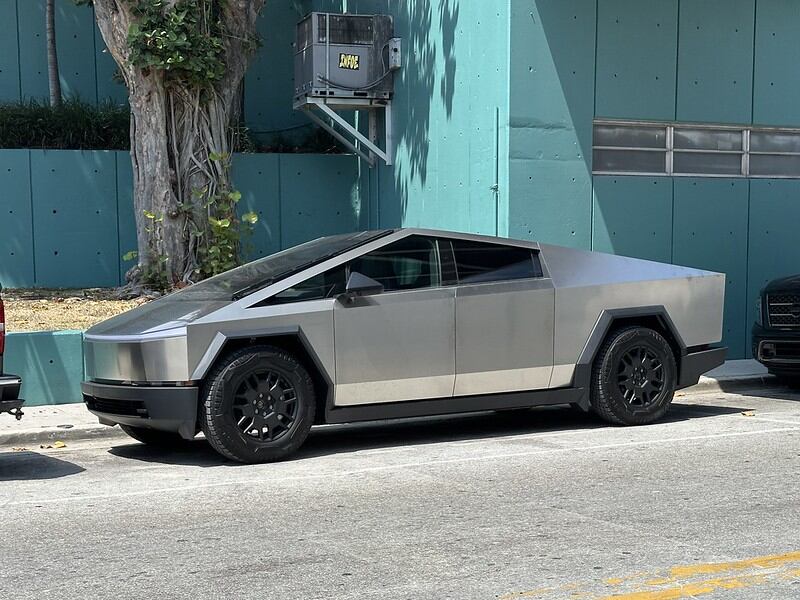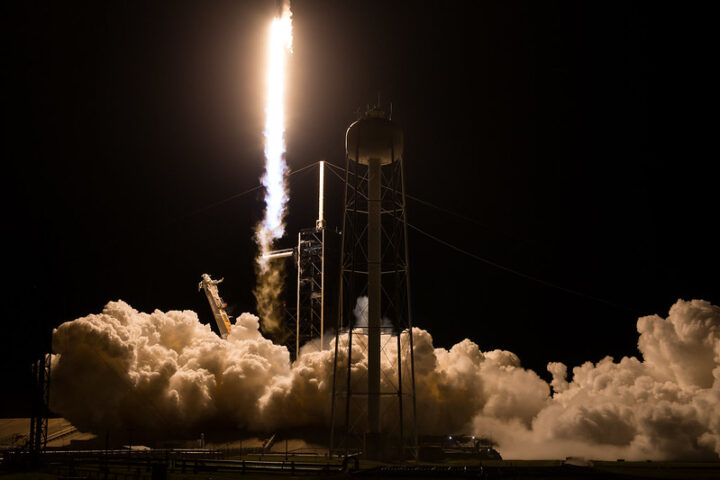Tesla faces mounting challenges with its Cybertruck, as approximately 2,400 unsold vehicles worth about $200 million accumulate across U.S. lots. In an unusual move, the company reportedly refuses to accept its own Cybertrucks as trade-ins from customers looking to purchase other Tesla models.
Sales Slowdown and Inventory Buildup
Despite Tesla’s initial claim of over one million pre-orders, Cybertruck sales have fallen substantially since peaking at 5,308 units in September 2023. The company has delivered approximately 46,000 Cybertrucks in total, according to information revealed when a recall affected almost every unit sold.
“Last year, Tesla could blame low Cybertruck deliveries on the production ramp, the more expensive Foundation Series, and the lack of access to the $7,500 tax credit,” noted industry publication Electrek. “All of those excuses are not available to Tesla this year. The Cybertruck is simply proving challenging to sell.”
Trade-in Rejection Creates Owner Dilemma
The company’s decision to refuse Cybertruck trade-ins places current owners in a difficult position. “Many Cybertruck owners reported trying to trade-in the truck for a new vehicle and they were told that the automaker currently doesn’t accept its own vehicle as a trade-in,” according to reporting from Electrek.
Some owners with vehicles in extended service have tried to return their trucks, but the company is “forcing them to go through the Lemon Law process,” further complicating matters for consumers.
Resale Values in Free Fall
The trade-in refusal coincides with plummeting resale values:
- 55% decrease year-over-year
- 13% drop over the last three months
- 6% decline in the past month
This rapid depreciation makes the vehicle less attractive to both current owners and potential buyers. Other used car dealers are reportedly giving “low-ball offers to potential sellers as they wait to see where the price will stabilize.”
Similar Posts
Multiple Factors Behind Cooling Demand
Several issues contribute to the Cybertruck’s market difficulties:
- High Price Point: The actual price significantly exceeds initial announcements, starting around $80,000 with higher-end models topping $100,000.
- Polarizing Design: The truck’s unconventional angular styling appeals to enthusiasts but limits mainstream adoption.
- Reliability Concerns: Multiple recalls have affected consumer confidence, including recent issues with falling trim panels and accelerator pedal problems.
- Political Fallout: CEO Elon Musk’s political activities and government roles have sparked nationwide “Tesla Takedown” protests. Demonstrations have occurred in at least 30 states nationwide, according to reports.
- Stronger Competition: The electric truck market now includes compelling alternatives from traditional automakers and startups.
- Feature Discrepancies: Some promised capabilities weren’t fully delivered in production models, disappointing early adopters.
Market Impact and Competitive Response
Competitors have capitalized on Tesla’s struggles. “Rival electric vehicle (EV) builders Polestar and Lucid are among companies offering discounts to Tesla owners looking to switch brands,” reports indicate.

Production Adjustments
Tesla has already begun “throttling down Cybertruck production” to avoid further inventory buildup. This follows a March production halt due to a containment issue related to trim components falling off trucks, requiring fixes for vehicles already delivered to customers.
Industry analysts expect Tesla may introduce additional discounts on standard models after selling off remaining Foundation Series inventory. The company also plans to launch a less expensive rear-wheel drive version, which could further impact used prices.
As one industry observer noted, “I am really curious to see where this vehicle program is going. I know many have already written it off, but who knows? Maybe it can improve with a mid-cycle update next year, and it can make a comeback?”
Tesla reportedly refuses Cybertruck trade-ins because of difficulties reselling these vehicles amid plummeting demand and values. With approximately 2,400 unsold new Cybertrucks already in inventory (worth about $200 million), the company appears unwilling to further increase its stock of vehicles it can’t move quickly. This unusual policy forces owners to seek external buyers in an already challenging market where used Cybertruck values have dropped 55% year-over-year.
The Cybertruck has experienced dramatic depreciation, with used values dropping 55% year-over-year, 13% in the last three months, and another 6% just in the past month. This rapid decline makes it one of the worst-depreciating vehicles in recent automotive history. The steep value loss has created a difficult situation for early adopters who paid premium prices, as both Tesla and other dealerships are reportedly offering low-ball trade-in values.
The Cybertruck has faced several quality and reliability issues since launch, including problems with trim panels falling off (which led to a March 2023 production halt), accelerator pedal malfunctions, and other defects requiring recalls. Some owners with extended service issues report being forced to pursue Lemon Law claims rather than receiving direct buybacks from Tesla. These quality concerns have significantly affected consumer confidence in the vehicle.
Elon Musk’s political activities and controversial public statements have sparked widespread “Tesla Takedown” protests in at least 30 states across the U.S. Reports indicate that some Tesla owners are trying to distance themselves from the brand due to Musk’s politics, particularly his involvement with the Department of Government Efficiency (DOGE). Competitors like Polestar and Lucid have capitalized on this sentiment by offering special incentives specifically targeting dissatisfied Tesla owners looking to switch brands.
Despite initially claiming over one million pre-orders, Tesla has delivered approximately 46,000 Cybertrucks in total according to information revealed during a recent recall. Monthly sales peaked at just 5,308 units in September 2023 and have since declined substantially. The company has already begun reducing production rates to avoid further inventory buildup, suggesting that demand has fallen significantly short of Tesla’s expectations.
Industry analysts expect Tesla to introduce additional discounts after selling remaining higher-priced Foundation Series inventory. The company also plans to launch a less expensive rear-wheel drive version, which could make the Cybertruck more accessible but might further impact used values. With current models starting around $80,000 (far above initially promised prices) and high-end versions exceeding $100,000, the pricing strategy has put the vehicle out of reach for many who had originally placed reservations.

















